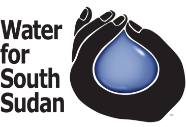
The Impact
Strengthening families and communities through water, sanitation, and hygiene education (WASH)
In a South Sudanese village, safe water sends ripples beyond just satisfying peoples’ thirst. Along with providing wells and hygiene programs to those in South Sudan, WFSS partners with the villages and people we serve.
The availability of water, coupled with basic hygiene information:
Improves individual and community health
Gives more children the opportunity to attend school
Increases local stability and economic development
The result is a village renewed by its own efforts and people that have new freedoms to transform their lives without the worries of contaminated water.









Achor lived in Abilnyang in rural South Sudan after fleeing conflict stemming from civil war in her birth village. After walking to her new home village, she walked for hours daily to fetch water from a stagnant, bacteria-infested puddle. She feared the sicknesses she and her family frequently get from drinking this water and that the puddle would dry up one day, forcing them to move again.
With a well in her village, Achor and her family can count on staying in Abilnyang and start investing in their home and community. Now, Achor spends her time on more productive activities, like weaving baskets to sell at the local market for income.
Before, Achor had so little time that it took her two months to make one basket. Now, it takes her two days, and she makes enough money from sales to pay for her daughter to attend school. She also has high hopes that her daughter will continue to secondary school because she is saving money, her daughter is healthy and has a perfect attendance record, and she can see a future for her family in their new home.
Adut started gardening two months ago and has made savings of over 15,000 South Sudanese pounds.
The mother of 3 children says before starting the kitchen garden, she was hopeless and didn’t know what to do to support her family. However, what she was making was not enough to send her children to school.
“Before getting in-kind support from Water for South Sudan, things were hard for me and my family; we were not nourished well, and healthy food was hard to get. It was like we were experiencing war in Sudan directly,” Adut narrates.
“But now, with around 15,000 South Sudanese Pounds [SSP] savings in my hand, everything is different. I can now afford to buy food and support my children’s education by selling vegetables, and I have started buying chickens and goats for future use; my life has changed, and my children have all their basic needs for home and school,” Adut added.
Adut more confident and very optimistic than before. She plans to buy some goats for the future and start a new life for which she is saving now. She hopes that other people will use water to get something from it.
Arek said, “In the beginning, “it was so hard to get water because water points were so far away and not clean water as it triggered physical fight at some water points,” she said
“The change or result we experienced now is the water yard installed by Water for South Sudan brought good things because we have clean water, and they provided us with a microloan for 12,000 SSP (equivalent to $92 US Dollars).”
Arek continued, “Microloans help our people as they often borrow cash for their minor medication within Pinydit.”
Years ago, people sold their goats for minor treatment, but now people just get to secure a microloan in the community and later return them with interest rates.
Water Creates Growth
Access to clean, reliable water transforms villages into hubs of economic vitality. When a community has a well, people gain the ability to work, irrigate crops, and produce goods to sell. Farmers can grow more food, local businesses can thrive, and markets can flourish, creating jobs and income for families. Clean water also supports education and health, allowing children to attend school and reducing the burden of waterborne diseases. With water as the foundation, villages can experience sustainable growth, stronger local economies, and improved quality of life.




